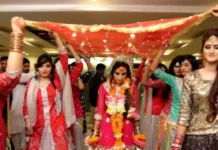It is possible that the House of Bishops will bring some proposal for change to General Synod in February concerning the way forward for the Church of England on the subject of human sexuality following the end of the Living in Love and Faithprocess.
A possible ‘small change’ proposal
At present there is no definite intelligence about what precise form this proposal might take. We will only know this for sure when the paperwork for Synod goes out towards the end of this month. However, one rumour that is circulating and that has a degree of credibility is that the House of Bishops will propose something along the lines of what was suggested in the Pilling report in 2013, namely giving the clergy, with the assent of the relevant PCC, the freedom ‘to mark the formation of a permanent same sex relationship in a public service.’[1] Some have described this as a ‘small change’ proposal :there would not be a formally authorised liturgy for such a service, but the bishops might provide some general guidance as to what such a service might contain, and the language of ‘blessing’ would not officially be used to describe it.
What Canon B4 allows and does not allow
The authority that the House of Bishops has to make such a proposal, and to then implement it, is the authority given to bishops in Canon B4 to ‘approve forms of service for use in any cathedral or church or elsewhere.’ What is important to note, however, is that the Canon lays down not only that the ‘words and order’ of a such a service have to be, in the opinion of the bishops, ‘reverent and seemly’ but also that they to be ‘neither contrary to, nor indicative of any departure from, the doctrine of the Church of England in any essential matter.’
The problem that this last point raises is that any service to mark the formation of a permanent same sex relationship in a public service would necessarily be contrary to, and indicative of a departure from, the current doctrine of the Church of England on an essential matter. For this reason, such a service would be something that the bishops have no right to approve.
We can, I think, take it as a given that a service along the lines suggested in the Pilling report would be affirmative and celebratory in nature. It would in theory be possible to mark the formation of a same sex relationship with a service of lament and repentance, but no one has ever suggested this idea. What people who have called for such a service have all suggested is that it should be a way of affirming and celebrating the new relationship before God and seeking God’s blessing on the relationship in prayer (even if a formal blessing does not form part of the service). This is also the form that unauthorised church services to mark same sex relationships have already taken when they have occurred.
If this is indeed the form that the kind of service that the bishops will propose will take, then it would involve a clear departure from the accepted doctrine of the Church of England.
The biblical position : two honourable states
As C S Lewis correctly notes in Mere Christianity, the traditional rule of the Christian Church as a whole with regard to sexual conduct is very simple: ‘Either marriage, with complete faithfulness to your partner, or else total abstinence.’ [2] This same rule has also been upheld by the Church of England. We can see this, for example, in the marriage service in the Book of Common Prayer which tells us that the second reason why marriage was ordained was: ‘for a remedy against sin, and to avoid fornication; that such persons as have not the gift of continency might marry, and keep themselves undefiled members of Christ’s body.’ Continency here means sexual abstinence, and what the marriage service is saying is that if you want to live rightly before God the only two options open to you are either sexual abstinence or marriage. Anything else involves being defiled by sexual sin or ‘fornication.’
Furthermore, the Church of England, like the Christian Church as whole, has always had a very clear understanding of what marriage is, an understanding which is expressed in the BCP marriage service and summarised in the words of Canon B.30: ‘marriage is in its nature a union permanent and life-long, for better or worse, till death them do part, of one man with one woman, to the exclusion of all others on either side.’
From the standpoint of this accepted Church of England doctrine if follows that same-sex relationships are not marriages (even if the state has chosen to regard them as such ) and that in so far as they involve sex outside marriage they are forms of fornication and as such contrary to the will of God.
What this means, as I have already noted , is that any form of service proposed by the House of Bishops that marked same-sex relationships as if they were marriage or affirmed them as good before God, and as such worthy of celebration and fit subjects of God’s blessing, is contrary to, and a departure from, the doctrine of the Church of England (as also the traditional doctrine of the Christian Church as a whole)
Are matters of sexual behaviour ‘essential’?
Read it all at Reflections of an Anglican Theologian










